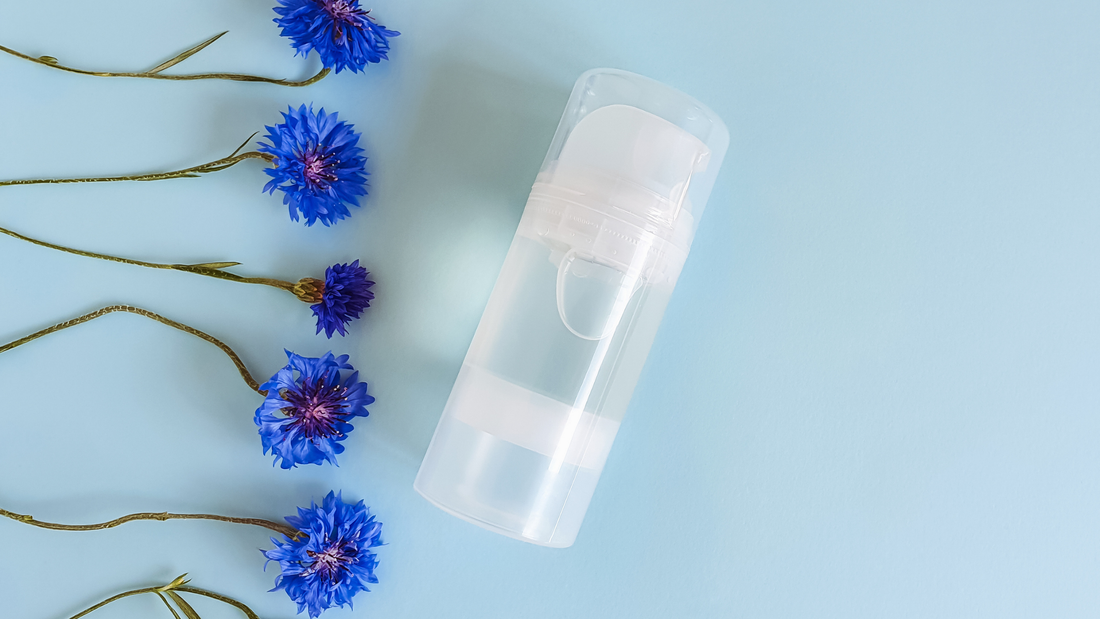
What Does Lube Actually Do? A Breakdown for Curious First-Timers
Share
If you’re new to sex toys, kink, or even just exploring your own body, there’s one thing you’ve probably heard again and again: “Use lube!”
But what does lube actually do? Why does it matter? And how do you know which type is right for you?
This guide breaks down exactly how lubricants work, why they’re essential for both comfort and pleasure, and how to choose one that suits your body, your toys, and your desires — especially if you're a curious beginner.
✅ What Is Lube, Really?
Lube — short for lubricant — is a substance designed to reduce friction during sex or solo play.
It’s used with:
- Sex toys
- Vaginal or anal penetration
- Mutual masturbation
- Condoms and other safe sex products
Most are water-, silicone-, or oil-based (more on that shortly), and each has its own strengths.
But at its core, lube makes things feel smoother, safer, and more pleasurable.
✅ What Does Lube Actually Do?
Here’s what happens when you don’t use lube:
- Friction causes discomfort or microtears.
- Penetration feels dry, sticky, or painful.
- Toys drag on the skin instead of gliding.
Now, here's what a good lube does:
🔹 1. Enhances Pleasure
Lube increases sensitivity and allows touch or movement to feel gliding and smooth, not dry or jerky.
🔹 2. Reduces Discomfort
Especially important for anal play or people experiencing vaginal dryness (common during menopause, postpartum, or stress).
🔹 3. Protects Skin
Less friction = fewer microtears, less irritation, and fewer opportunities for bacteria to enter.
🔹 4. Supports Toy Use
Many toys feel significantly better with lube. Silicone and glass toys in particular benefit from the added glide.
If you're just starting with toys, our Beginner's Guide to Vibrators is a great place to explore more.

✅ Lube Is for Everyone — Not Just “Dry” People
There's a big myth that lube is only for people with a problem — not true.
Even if you're naturally well-lubricated, or playing with a partner, lube can:
✅ Boost sensation
✅ Make touch gentler
✅ Prevent chafing during longer sessions
✅ Make new experiences (like anal or toy play) easier and safer
Pro tip: Keep it nearby like you would a condom or toy — ready when the moment calls for it.
✅ The Three Main Types of Lube (And How to Choose)
🔸 1. Water-Based Lube
- The most versatile and widely recommended
- Safe with all sex toys and condoms
- Easy to clean up
- May need to be reapplied during longer sessions
✅ Best for: beginners, vaginal play, toy use
🧴 Try it with: silicone vibrators or couples’ toys from our Travel-Friendly Sex Toy Collection
🔸 2. Silicone-Based Lube
- Ultra-slick and long-lasting
- Great for shower sex or anal play
- Not compatible with most silicone toys
✅ Best for: advanced users, anal play, water-based fun
⚠️ Avoid on silicone toys — it can degrade the material.
🔸 3. Oil-Based Lube
- Natural oils like coconut or almond oil
- Luxurious, moisturising texture
- Not compatible with latex condoms
- Can stain sheets or degrade some toys
✅ Best for: external massage, hand jobs, longer sessions without reapplication
Always patch-test natural oils to avoid irritation.
✅ Do You Always Need Lube with Toys?
In short: yes.
Even if your toy promises “soft silicone” or “ultra-smooth finish,” lube makes it safer, smoother, and more enjoyable.
This is especially true for:
✅ Anal toys (the rectum doesn’t self-lubricate)
✅ Glass, metal, or firm silicone toys
✅ First-time users still getting used to insertion
For cleaning and storing them safely, check our Sex Toy Cleaning Guide.

❓ FAQ: First-Time Lube Questions
Is lube safe for sensitive skin?
Look for unscented, glycerin- and paraben-free water-based lubes if you're prone to irritation.
Can I use spit as lube?
It’s better than nothing — but it evaporates quickly and doesn’t protect the skin like real lube does.
Does lube expire?
Yes. Always check the packaging and replace lube that smells off or has changed texture.
Can I use kitchen oils like olive oil?
Technically yes, but they’re not designed for intimate areas. Coconut oil is the safest “natural” choice — but always patch-test.
Final Thoughts: Lube is a Game-Changer (Not a Luxury)
Lube isn’t something you reach for when there’s a “problem.”
It’s a tool for making every kind of play smoother, safer, and more pleasurable.
Whether you’re exploring solo for the first time or deepening intimacy with a partner, good lube is one of the easiest ways to:
✅ Boost comfort
✅ Prevent injury
✅ Elevate your pleasure
Ready to experiment? Browse our Lube Collection to find your perfect match — whether you're playing solo, with toys, or with someone you trust.